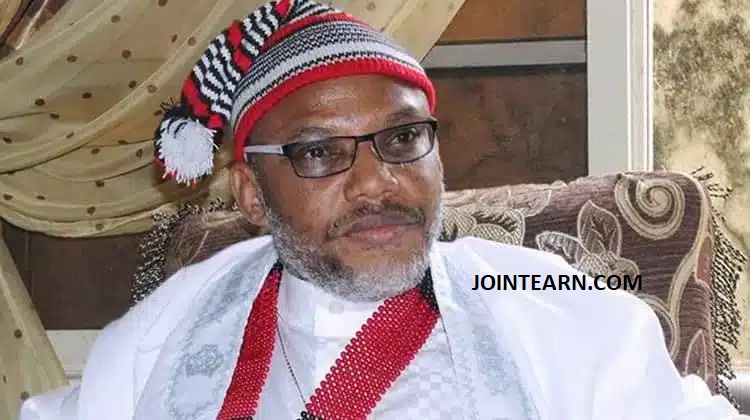Abuja, Nigeria – In a landmark decision that has sent shockwaves through the Nigerian political landscape, the Supreme Court has set aside the judgment that had earlier recognized Julius Abure as the National Chairman of the Labour Party (LP). The ruling, which was delivered earlier today, marks a significant turn of events in the leadership crisis that has rocked the party in recent months.
The Supreme Court’s decision came after an appeal was filed against the ruling of the Court of Appeal, which had validated Abure’s position as the party’s national chairman. The apex court, in its ruling, overturned the earlier decision, declaring that the legal processes leading to Abure’s recognition as the chairman were flawed and did not follow the proper legal procedures required for such a critical appointment.
The Background of the Dispute
The legal tussle over the leadership of the Labour Party has been ongoing for several months, with multiple court battles and internal disputes over who legitimately holds the position of national chairman. Julius Abure, who had been at the helm of the party since 2020, found himself at the center of controversy after several factions within the party raised concerns about his leadership style, allegations of financial mismanagement, and his ability to lead the party to greater success in future elections.
Abure’s leadership had been contested by certain members of the party, who argued that his election as national chairman had not followed the party’s constitution, and they accused him of disregarding internal democratic processes. In response, Abure’s camp argued that he was duly elected and that the opposition within the party was merely driven by political ambition and personal interest.
The internal wrangling reached its peak in 2023 when a group of party members took the matter to court, seeking the removal of Abure from office. The initial ruling in the case saw Abure’s position as the national chairman affirmed, but the opposing faction, led by some disgruntled members of the party, immediately filed an appeal. The appeal was heard by the Court of Appeal, which upheld Abure’s status, but the case did not end there, leading to the ultimate intervention of the Supreme Court.
The Supreme Court’s Ruling
In a unanimous decision, the Supreme Court ruled that the judgment by the Court of Appeal, which had recognized Abure as the LP national chairman, was based on faulty legal grounds. The Court stated that the lower court had failed to take into account crucial constitutional provisions of the Labour Party, and as such, the affirmation of Abure’s chairmanship was legally unsound.
The apex court also ruled that the procedural and constitutional violations by Abure’s camp in the leadership selection process had created a cloud of illegitimacy around his position. The Court emphasized the importance of adherence to constitutional processes in political party leadership, noting that any breach of these processes undermines not only the internal democracy of the party but also the integrity of the political system.
The ruling effectively nullified the previous decision recognizing Abure as the LP national chairman, thus opening the door for the Labour Party to hold new elections for the position of national chairman in line with its constitution and the provisions of the Nigerian constitution.
Reactions to the Supreme Court’s Judgment
The judgment has triggered a wave of reactions from key stakeholders in the Labour Party and beyond. Supporters of Abure’s leadership have expressed shock and disappointment, claiming that the decision is politically motivated and could undermine the stability of the party. They argue that Abure had led the party effectively during the 2023 general elections and that his leadership was crucial to the party’s success, particularly in the presidential election, where LP candidate Peter Obi gained significant traction.
On the other hand, members of the opposing faction within the party have welcomed the ruling, with many of them declaring that it is a victory for democracy and rule of law. They have called for the immediate organization of fresh elections for the position of national chairman, in the hope that a new leadership structure will emerge that is more inclusive and transparent.
One of the prominent critics of Abure’s leadership, who had previously challenged his position in court, stated that the Supreme Court’s judgment had cleared the way for the LP to finally restore its internal democracy. “This ruling is a victory for the Labour Party. It is time to move forward and elect a leader who can truly unite the party and take it to the next level,” the critic said.
Political analysts have also weighed in on the ruling, pointing out that it is indicative of the ongoing struggle within Nigerian political parties to maintain internal democracy and adhere to constitutional provisions. Many analysts believe that the judgment has far-reaching implications, not just for the Labour Party, but for the broader political landscape in Nigeria, where factionalism and leadership disputes are often a source of instability.
What Happens Next for the Labour Party?
With the Supreme Court’s ruling effectively nullifying Abure’s chairmanship, the Labour Party now faces the challenge of navigating a period of leadership uncertainty. The party’s leadership structure will need to be reviewed, and a new process for electing a national chairman will be put in place.
The national executive of the party, as well as the party’s Board of Trustees, will likely play a key role in determining the next steps. Given the volatile nature of the current political climate, the party must work quickly to restore stability and prevent further fragmentation.
There are calls for the party to immediately convene a national convention to elect a new national chairman and resolve the leadership vacuum that has emerged. Some members have already indicated their interest in running for the position of national chairman, and it remains to be seen how the party will handle these internal contests.
Additionally, the party’s internal wrangling could affect its prospects in future elections, including the upcoming governorship elections in several states. The Labour Party’s ability to maintain a united front will be crucial in its continued efforts to remain a competitive force in Nigerian politics.
Legal Implications of the Ruling
The Supreme Court’s ruling not only has political implications for the Labour Party but also has significant legal ramifications. It underscores the importance of adhering to party constitutions and legal processes in the appointment of political party leaders. The ruling also highlights the role of the judiciary in ensuring that party affairs are conducted within the framework of the law.
Legal experts have suggested that this case could set a precedent for similar disputes in other political parties, as it reinforces the notion that internal party governance must align with constitutional provisions. The ruling may also prompt other political parties to review their internal leadership processes to ensure they are not vulnerable to legal challenges.
Conclusion
The Supreme Court’s decision to set aside the judgment recognizing Julius Abure as the National Chairman of the Labour Party has thrown the party into a state of uncertainty, with both supporters and critics of the ruling bracing for the next steps. While the judgment has been hailed by some as a victory for democracy, it has also raised concerns about the future direction of the party. As the Labour Party grapples with its leadership crisis, the resolution of this issue will be critical in determining the party’s ability to remain a major player in Nigerian politics in the years to come. The next chapter for the Labour Party will depend on how it navigates this judicial setback and works toward resolving its internal disputes in a fair and transparent manner.











